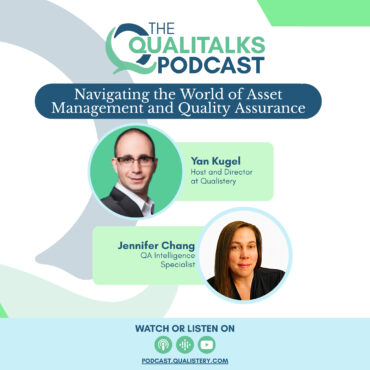
When You Deal With Risk, Don’t Be a Firefighter!
Risk Management is a critical topic that is, unfortunately, misunderstood by many pharmaceutical companies. Many take the reactive approach instead of the proactive one, and that can cause them a […]
 play_arrow
play_arrow
Agility in Pharma: Transforming Challenges into Opportunities [Elizabeth Hickman] Elizabeth Hickman
 play_arrow
play_arrow
Navigating Workplace Dynamics as a Woman in Leadership [Christy Mazzarisi] Christy Mazzarisi
Yogesh Krishan Davé August 31, 2020 263

 play_arrow
play_arrow
How to Combat the Two Major Deficiencies in Pharma Yogesh Krishan Davé
(YouTube Video Below)
Here are some of the things that we can learn about Training Deficiencies in the Pharmaceutical industry.
Subscribe
The Pharmaceutical industry is now experiencing the same phenomenon that many other industries have faced in the past. Many companies were forced to try and reinvent themselves in the face of challenges in their business environment. One of the issues that have been facing the pharma industry is the lack of education and training in pharmaceutical companies.
Table of Contents
-Yogesh mentioned how to follow the correct Standard Operating Procedures(SOP) in the pharmaceutical industry. He said that it has different kinds of training systems. This training should be continuous and with sufficient frequency. It should include the topics to be covered, the people to attend, and the approximate timing for each SOP. He mentioned that every person should have a training module and need to understand the SOP. Proper education in GMP training is critical to evaluate the effectiveness of the training. Proper education for this training is a big obligation to be aware of the deficiencies that they will encounter in the future.
Ensure that products are manufactured batch upon the batch, year upon year, to the appropriate and consistent quality standards and in accordance with regulatory requirements by requiring that there be a pharmaceutical quality system.
The risk-based approach in definition and classification of deficiencies
• Deficiencies are descriptions of non-compliance with GMP requirements.
• A distinction is made between deficiencies as a result of – a defective system or, – failure to comply with the system.
• Deficiencies may be classified as – Critical Observation – potential risk harm to the user – Major Observation – major deviation from GMP/GCP – Minor or Other Observation – a departure from good practice
[simple-author-box]
Information on good manufacturing practices (GMP) in the life science industry is scattered, vague and poorly organized. We have chosen to solve this problem by organizing the best possible GMP webinars and courses to ensure we deliver all the information you need in a concise, engaging and clear format. All events are free and open to anyone in the industry.
Browse Upcoming Free GMP Webinars
Tagged as: GMP, Deviations, Pharma Deficiencies, Training.
Yogesh Krishan Davé is a Qualified Person (QP), working in the pharmaceutical industry for about 40 years now. Yogesh has a comprehensive understanding of drug research, drug development, clinical research, and commercial manufacturing. He is also a trained lead auditor in GMP/GDP compliance, and knowledgeable on the ICH GCPs.

Risk Management is a critical topic that is, unfortunately, misunderstood by many pharmaceutical companies. Many take the reactive approach instead of the proactive one, and that can cause them a […]


Copyright © 2023 Qualistery